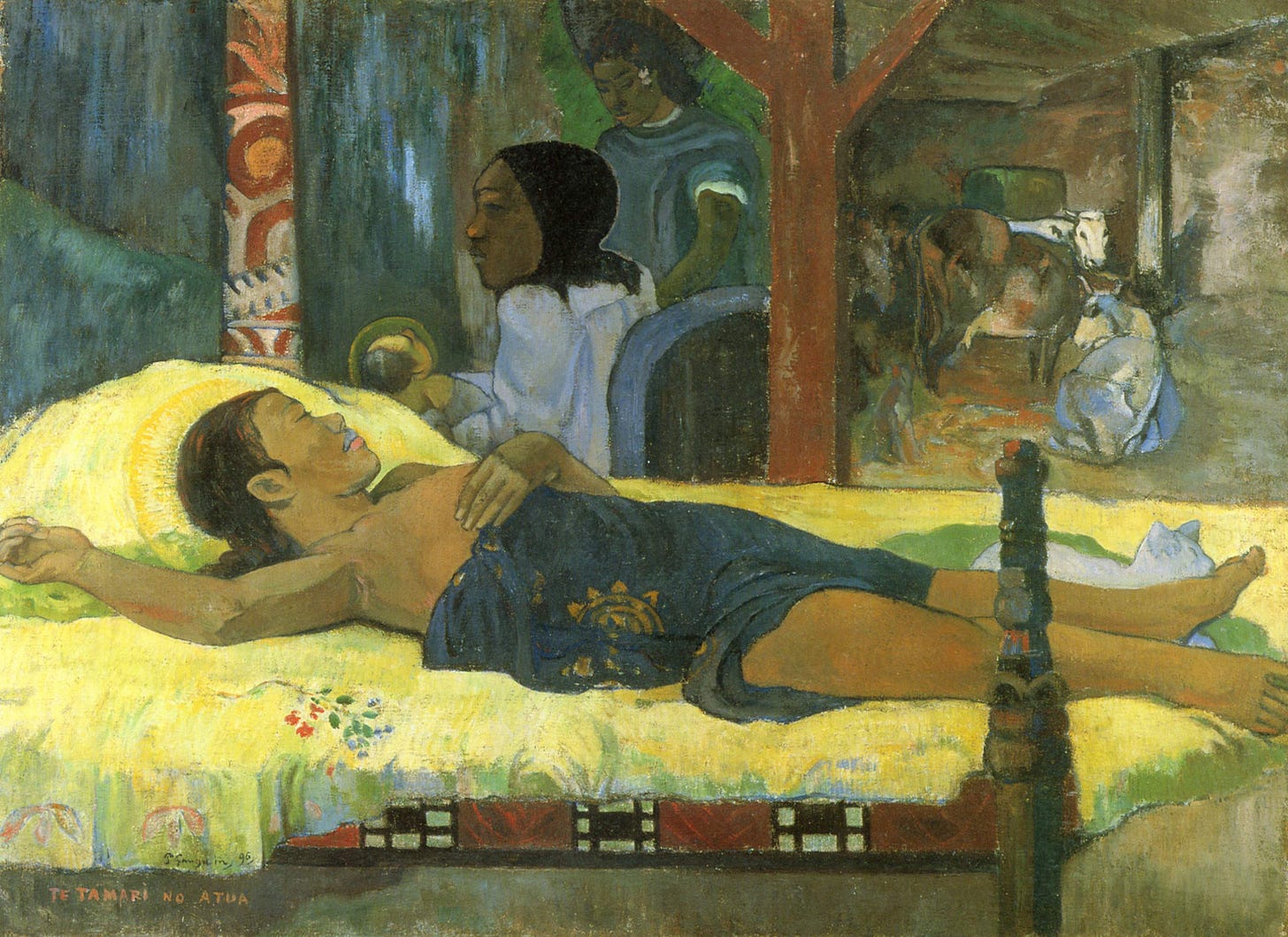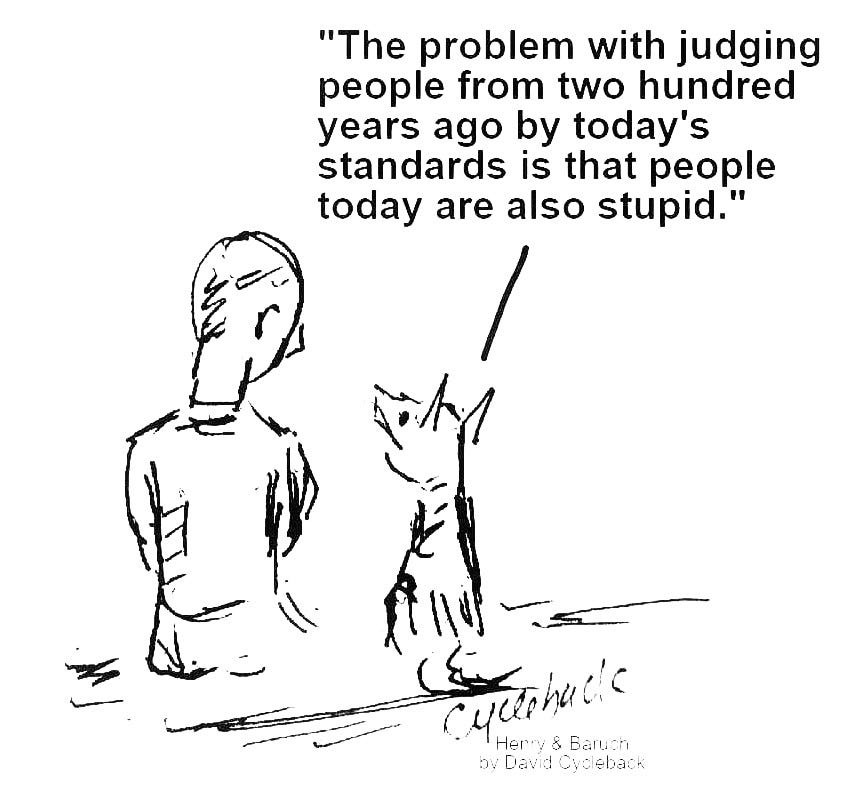Good ideas can come from bad people
Many great thinkers, artists and scientists had bad sides

Everyone is complex, imperfect, and at times hypocritical, shaped by the context of their times. Good people can do bad things, bad people can do good things, and many once-common ideas are now considered wrong.
Henry Ford and Martin Luther were antisemites, Woodrow Wilson was a racist, Coco Chanel was a Nazi spy, Gandhi was racist and sexist, John F. Kennedy cheated on his wife, and Plato and Aristotle justified slavery.
On the other hand, Adolph Hitler promoted animal welfare and anti-smoking programs, Ted Bundy saved lives while working for a suicide hotline, cult leader Jim Jones spoke against nuclear weapons and racism and was director of the Human Rights Commission in Indianapolis, Al Capone opened one of the world’s first soup kitchens for the poor, and Genghis Khan supported religious freedom.
The question often arises: how should we regard important ideas and great works from people who did bad things?
Most people recognize that good ideas and works can come from imperfect individuals who do bad things. No one opposes animal welfare or helping suicidal people because Hitler and Ted Bundy were involved in these areas. I asked a medical researcher if we should use life-saving medical techniques developed by the Nazis during World War II, and she didn't hesitate to say yes. Perhaps a different medical researcher would have a different answer or would have paused.
Some people believe we should discard important ideas if they originated from individuals they consider irredeemably bad. They argue that if the source is so badly tainted, then any ideas from them are likewise tainted.
A key example is philosopher Immanuel Kant (1724-1804). As one of the most influential figures of the Enlightenment, he championed personal liberties and freedoms, including the principle of "the worth and dignity of every person," a foundational concept in liberal religions like Unitarian Universalism.
However, Kant was also a white man who promoted scientific racism. Because of this, some racial justice activists seek to dismiss all of his Enlightenment ideas. Within Unitarian Universalism, some leaders advocate removing the concept of "the worth and dignity of every person" and aim to "decenter human dignity."
I believe this approach is wrong. We shouldn't discard important ideas simply because their originators had flaws. The United States Constitution and Declaration of Independence were authored by white slave owners advocating for equal rights and voting privileges just for wealthy white men. The response to this shortcoming is not to throw out voting rights and concepts of equality, but to spread them to all, including women and racial and ethnic minorities.
.
Art
Exploring the dilemma of appreciating exceptional art created by morally flawed individuals is a prevalent theme in the art world. Many renowned artists have been revealed to have questionable or abhorrent traits. Paul Gauguin was a pedophile; Alice Walker holds antisemitic views; Caravaggio was a murderer; and while Charlotte Perkins Gilman is celebrated as a feminist icon, she also expressed racist sentiments.
One question I often ponder is whether art must adhere to moral standards—can exceptional art exist independently of morality—and whether artists themselves are obligated to uphold moral principles. Revolutionary art challenges societal norms and is often produced by transgressive personalities who push the envelope in many ways. It should not surprise that radical and passionate art, scandalous for their times but now celebrated, came from volatile and mentally troubled artists like Caravaggio and Van Gogh.
Some argue that art transcends the artist and should be evaluated solely on its merits, while others advocate for considering the context in which art is created. There's also the contention that promoting the work of morally questionable individuals perpetuates their wrongdoing. I believe censorship isn't the answer; instead, people should be empowered to form their own opinions.
.
People are the product of their time
Humans are deeply influenced by the cultural, social, and political milieu of their time, often adopting beliefs and behaviors that may appear problematic to later generations. It's crucial to acknowledge that expecting individuals to transcend the norms of their era is unreasonable, especially considering the potential repercussions they faced for doing so. Keep in mind that some of today’s acceptable beliefs and behaviors will be frowned upon in the future.
Understanding the prevailing beliefs and accepted practices of the era provides valuable insight into the mindset of individuals. This includes recognizing the knowledge available at the time and the societal norms that shaped behavior. Comprehending the legal and political landscape helps in grasping the constraints and opportunities individuals faced. Laws and policies of the time often dictated behavior and influenced decision-making. Assessing personal agency is vital in determining the extent to which individuals adhered to or challenged prevailing norms. Comparing their actions and beliefs to those of their contemporaries sheds light on their relative positions within their society.
By considering these factors in tandem, a more nuanced and fair evaluation of historical figures can be achieved.
.
The Fox News Fallacy
One’s political and ideological opponents can have good ideas and can more clearly than one’s allies see one’s irrational beliefs and hypocrisies. It is wrong to dismiss someone’s ideas simply because of their political views.
Political scientist Ruy Texiera coined the term "Fox News Fallacy" to describe a logical error where people dismiss or undermine an argument or piece of evidence solely because it is associated with Fox News. This fallacy occurs when the validity of a claim is judged based on its source rather than its content. It is an ad hominem attack on Fox News, suggesting that anything reported by the network must be false without actually evaluating the evidence or reasoning behind the report. Conservatives often do the same for reports from leftist news sources.
This fallacy is harmful to rational discourse because it prevents a fair assessment of information.
.
The are no objectively correct answers to all of these questions. Different people will have different sentiments and priorities, and situations should be judged on a case-by-case basis. While someone’s personal life and ideas cannot be completely separated from each other, I advocate for assessing ideas and works on their own merit. As I wrote in the beginning, important ideas can come from bad people and bad ideas can come from good people.




Good stuff. Thanks for writing it.
One of your most important writings, David, thanks!